A Study to
Assess
the
Risk of Heart
Disease
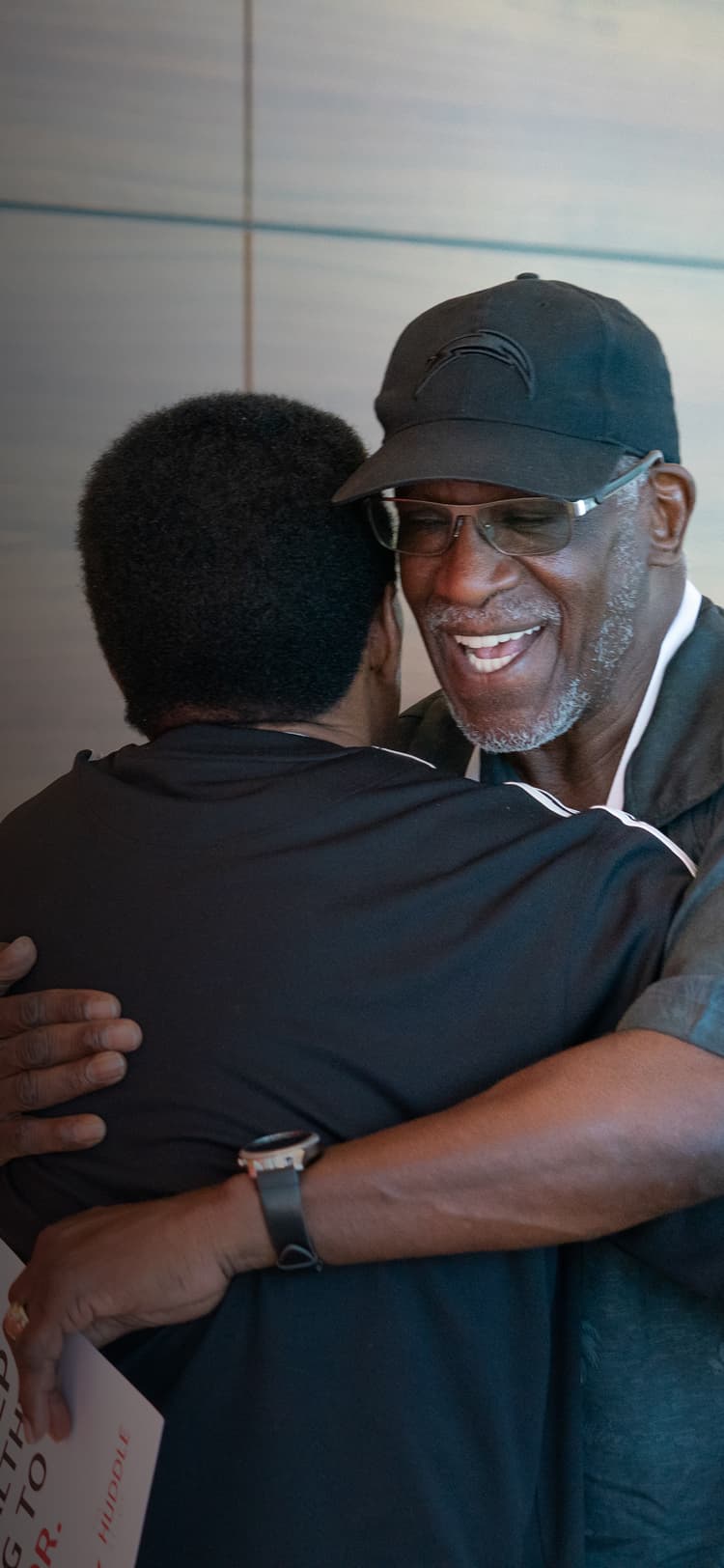
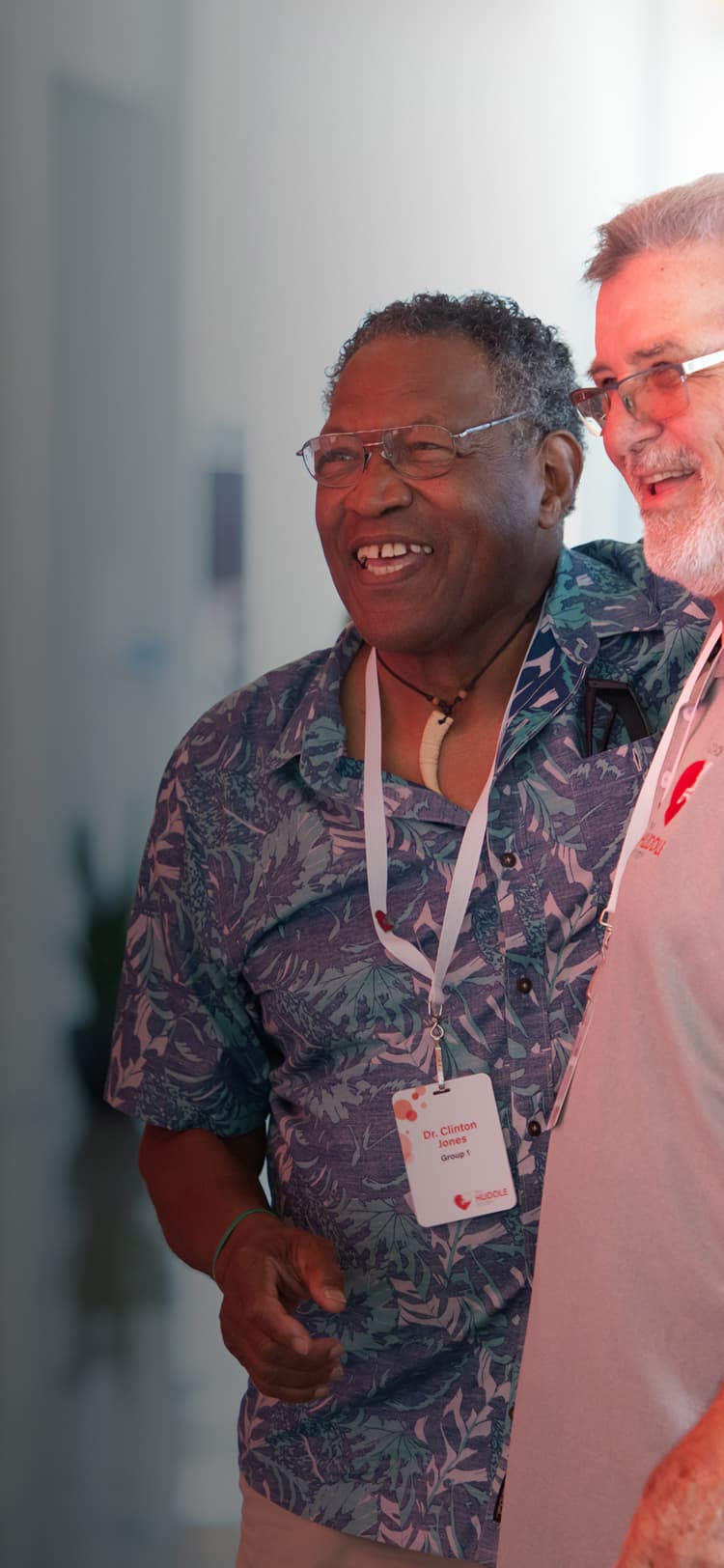
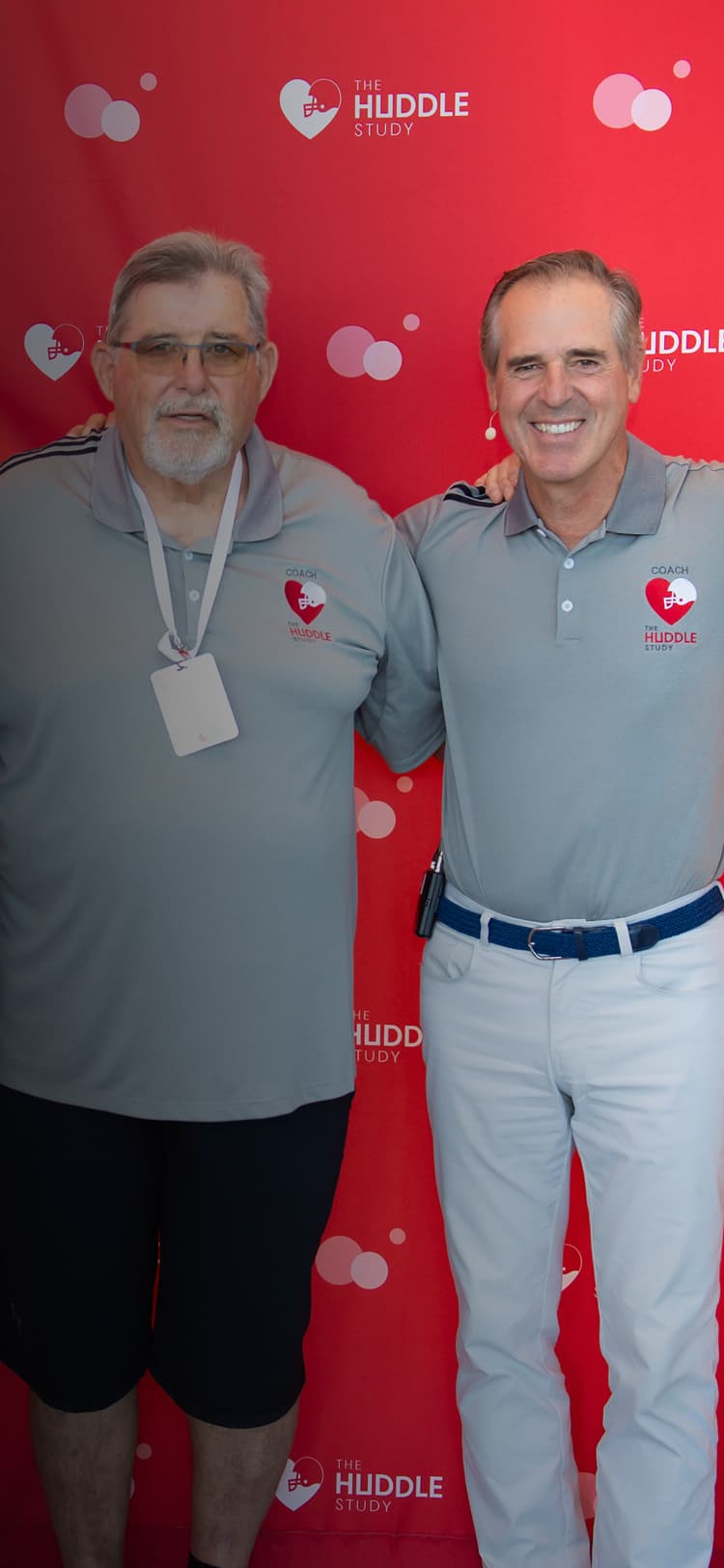
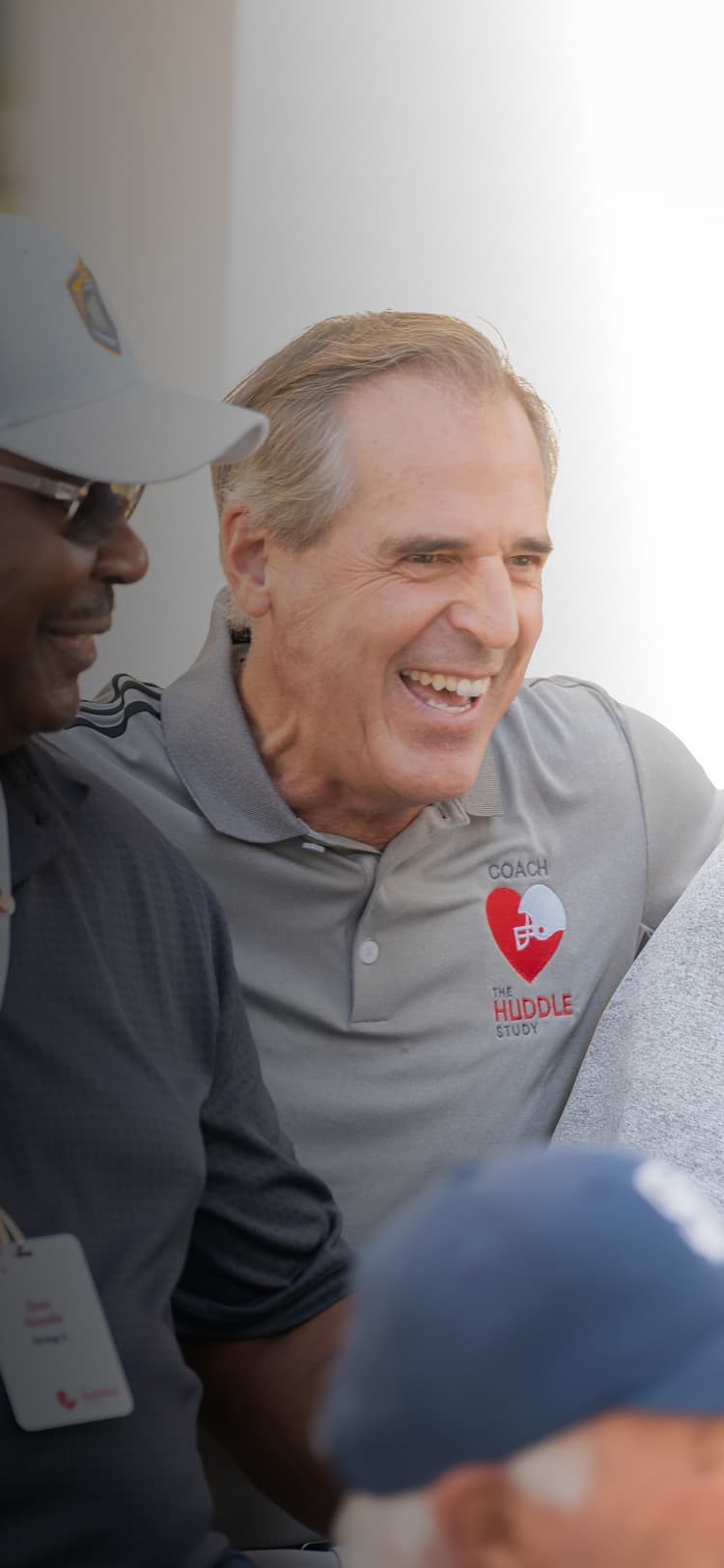
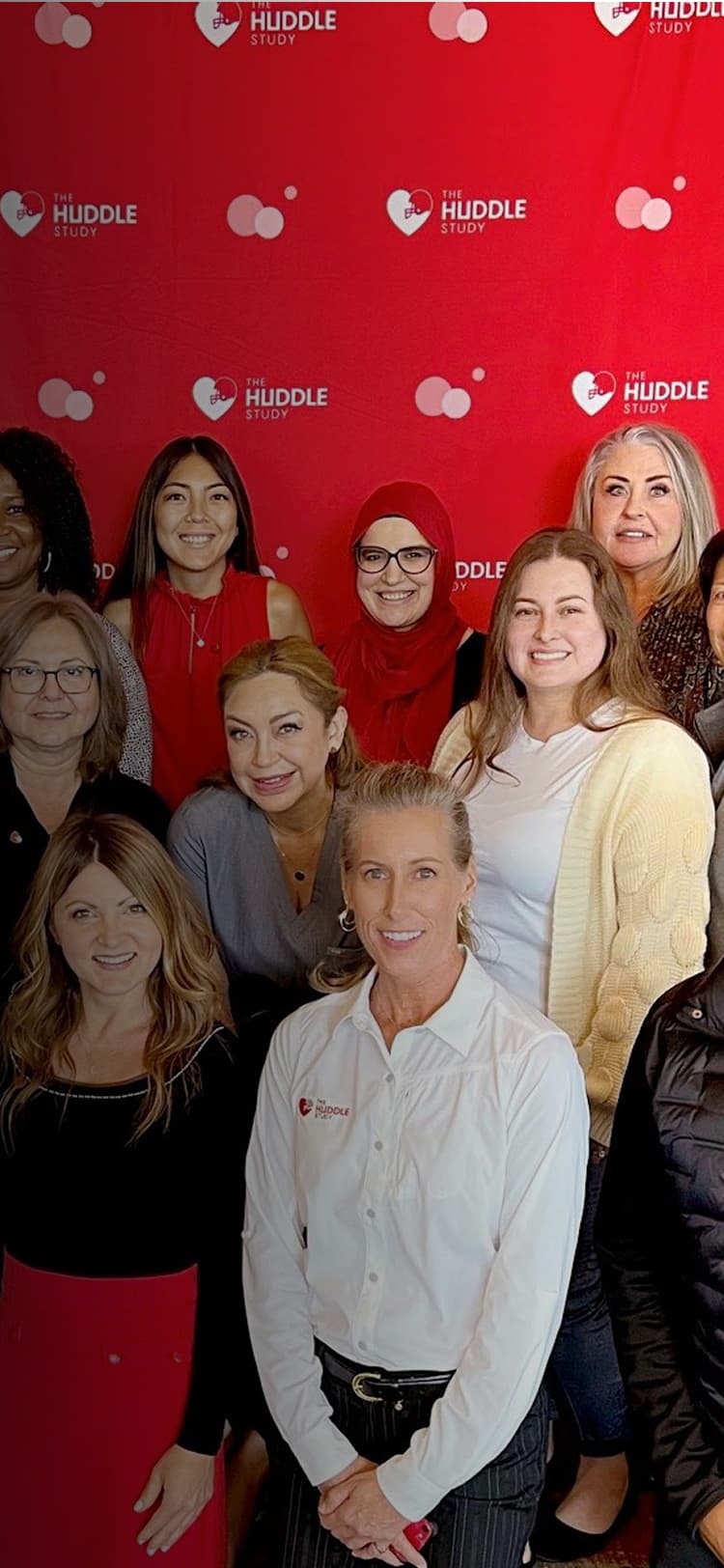
What was the
HUDDLE Study?
The HUDDLE Study aimed to raise awareness and assess the prevalence of cardiovascular disease and its risk factors among NFL alumni and their families.
Education sessions and screening events to assess the study participants for cardiovascular disease were a big part of the study.
Every 25 seconds
an American has a cardiovascular event.
U.S. Statistics
72%
of Americans don’t believe they are
at risk for a cardiovascular event.
U.S. Statistics
Heart disease
is the leading cause of
death in the U.S.
U.S. Statistics
Learn More About the Huddle Study
498 study participants were screened
at 9 events nationwide.
Palo Alto and Irvine, CA (two events held in Irvine); Phoenix, AZ;
Dallas and Houston, TX; Chicago, IL; Atlanta, GA; and Tampa, FL.
Participants received three simple,
non-invasive assessments
to check
their heart
health:

Echocardiogram
A safe ultrasound test that checks for structural issues in the valves and chambers of the heart.

EKG (Electrocardiogram)
Monitors the heart’s electrical activity to detect abnormal rhythms and measure how fast or slow the heart beats.

Blood Pressure Check
Measures the risk for hypertension. High blood pressure can increase the risk of developing heart disease, having a heart attack, or suffering a stroke.
Although more than 50% of participants did not report a history of hypertension, 83% had high blood pressure, an indicator of heart disease. The screenings also revealed that 37.5% of participants had an abnormal EKG and 55% had an abnormal echocardiogram.
HUDDLE Study
Education
Events
Bringing the knowledge of heart health home to the community.
Held nationwide, these educational sessions focused on raising awareness of the signs of heart disease, including coronary artery disease, heart attack, stroke, heart failure, abnormal heart rhythms, and valve problems. This knowledge is especially important in communities most at risk.

Although heart disease can affect anyone, factors like age, gender, family history, high blood pressure (HBP), high cholesterol, diabetes, ethnic background, and being overweight or obese increase the risk.
Visit these websites for more information:
Prestigious Recognition of the
HUDDLE Study by the American
College of Cardiology
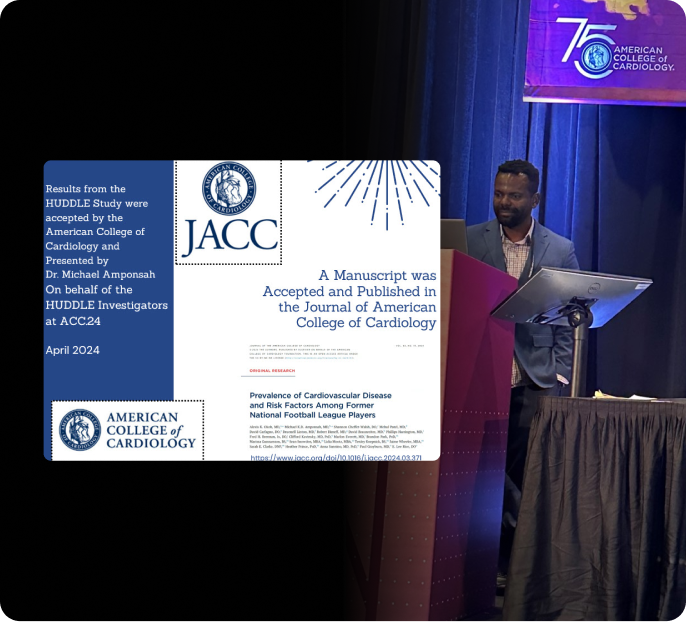
The HUDDLE study was chosen from among thousands of studies submitted annually for presentation to the American College of Cardiology (ACC). To qualify for presentation to its membership of top cardiologists, researchers, and industry leaders, a study must undergo extensive peer review, evaluating its scientific rigor, clinical relevance, ethical standards, originality, and impact on practice and future research.
The HUDDLE study was also published in the Journal of the American College of Cardiology (JACC), the flagship journal of the American College of Cardiology. Considered one of the most prestigious and influential journals in cardiovascular medicine worldwide, the JACC is known for featuring landmark studies that influence clinical guidelines and standards of care.
Read full articleThank you to all those involved in The HUDDLE Study, and a special thank you to Dr. Amponsah, Dr. Okoh, and Dr. Rice, who were instrumental in the interpretation of the results of The HUDDLE Study.

Dr. Michael
Amponsah, MD

Dr. Alexis
Okoh, MD

Dr. Lee
Rice, DO
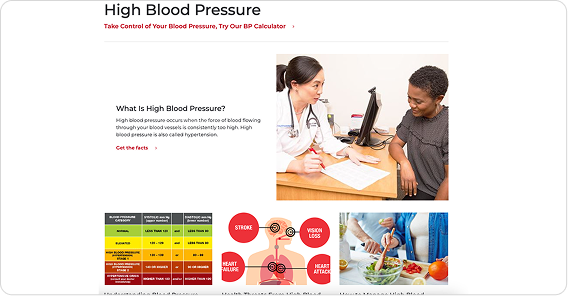 heart.org
heart.org
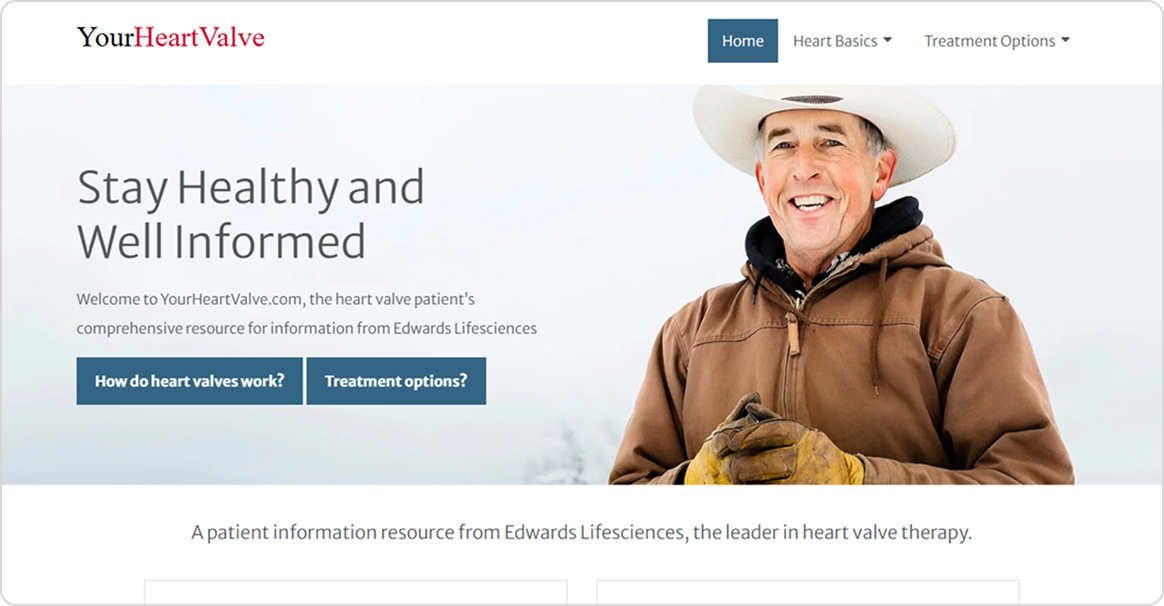 yourheartvalve.com
yourheartvalve.com